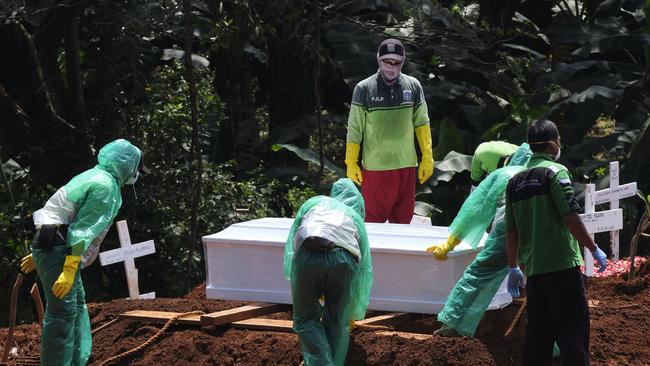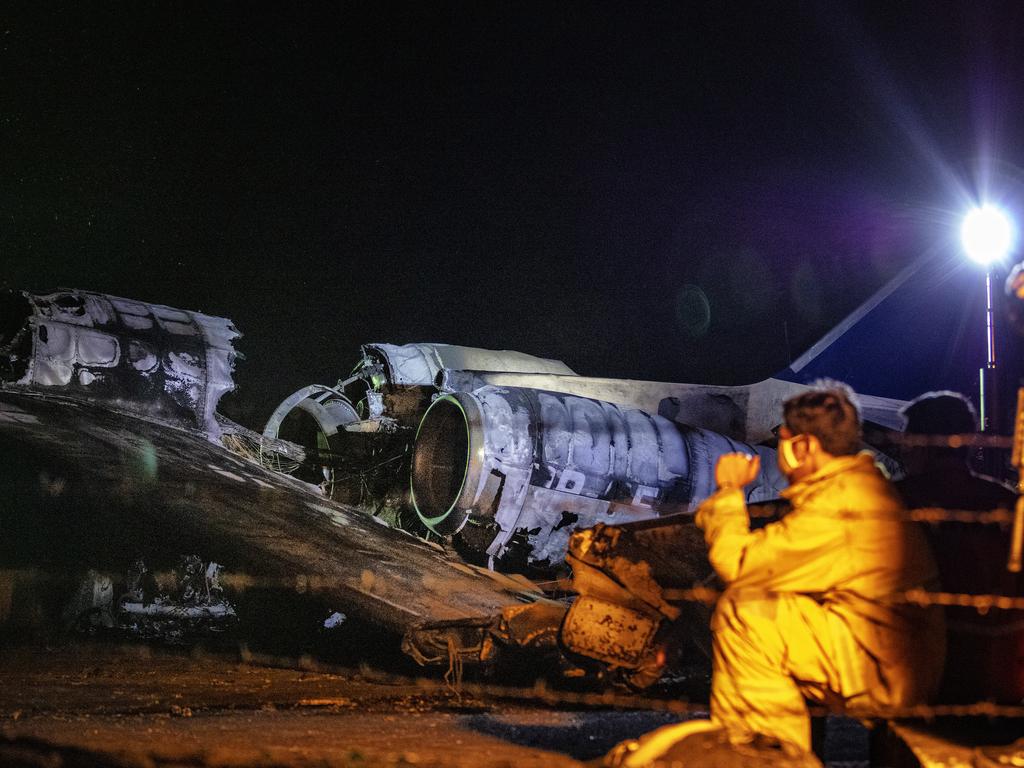Coronavirus: Jokowi to allow Muslim exodus after Ramadan
Indonesia’s mass homecoming for Idul Fitri — the Muslim equivalent of the Chinese New Year — will go ahead next month.

Indonesia’s mass homecoming for Idul Fitri — the Muslim equivalent of the Chinese New Year holiday that first helped spread COVID-19 — will go ahead next month after the government backed away from plans to ban tens of millions of people returning to their villages.
Public health experts and even senior Islamic scholars have warned that allowing the mass exodus, known as mudik, to go ahead could spark a huge escalation of the virus across the world’s fourth most populous nation to regions far less equipped than Jakarta to deal with outbreaks.
The decision is the latest flip-flop by a government that has appeared paralysed by indecision over how to address the crisis, which the World Bank has warned could spiral into a regional economic recession and drive millions of people back into poverty.
“The best evidence we have for not allowing mass migration right now is what happened in Wuhan when five million left the city and spread the virus across China and the rest of the world,” University of Queensland virologist Ian Mackay told The Weekend Australian.
“It comes down to the simple fact that if there are susceptible humans out there the virus can infect them and if we don’t stop these mass movements then it will flare up again.”
President Joko Widodo had looked poised to ban mudik earlier this week after authorities across Java revealed tens of thousands of informal workers — such as Gojek drivers, food cart operators and maids — whose incomes had dried up had already left the capital, causing fresh outbreaks of infection. There was brief talk of closing the newly built toll roads ahead of the holiday that begins on May 23, after the holy fasting month of Ramadan in which large groups of Muslims gather in the evenings to break their daily fast.
University of Indonesia modelling has warned at least 140,000 Indonesians could die of the virus without tougher measures by the end of the month.
Even the Indonesian Ulema Council, the country’s most senior Islamic body, urged the government on Friday to enforce a ban, declaring it haram for Muslims to return to their villages during the outbreak and citing verses from the Koran to support a ban.
Yet Jokowi opted instead for a limp appeal to 267 million Indonesians not to go home for the holiday, apparently fearing similar chaos to that in India where a three-week lockdown has paralysed supply chains and stranded millions of workers.
Those Indonesians who do return must self-isolate or face police action — an order many critics have labelled unenforceable. Those who stay put will be offered unspecified financial inducements and a possible alternative holiday.
Nurul Nadia, a public health expert with the Centre for Strategic Development Initiatives, said the policy was “very confusing” and likely to be “disastrous”.
“Without a mudik ban we will certainly be headed down Italy’s path. Just imagine thousands of seemingly healthy asymptomatic carriers going back to their villages to visit the elderly? It could be the starting point of a big wave of new infections,” Dr Nurul said.
But Co-ordinating Minister for Maritime Affairs Luhut Panjaitan defended it as “the best among a number of flawed options” given the main consideration was “to prevent the economy from stopping altogether”.
“Even if we choose to prohibit people from mudik, they’d do it anyway. So we decided to tell them instead that mudik will bring the disease to their families and it’s better not to do it.”
Jakarta Governor Anies Baswedan, who has already imposed large-scale social distancing measures across the city of 10 million people, has warned the decision leaves his administration powerless to enforce tighter restrictions.
Mr Anies has for weeks been pushing the central government to authorise a lockdown of the capital, which already accounts for half of Indonesia’s 1790 cases and 90 of its 170 deaths.
He has begun releasing alternative death statistics based on the number of people buried by the city’s parks department according to COVID-19 protocols but who had either not been tested or whose results were not yet confirmed. As of Friday it was 401.






To join the conversation, please log in. Don't have an account? Register
Join the conversation, you are commenting as Logout